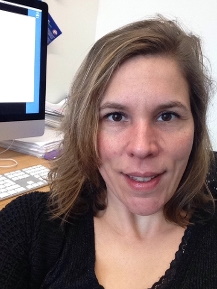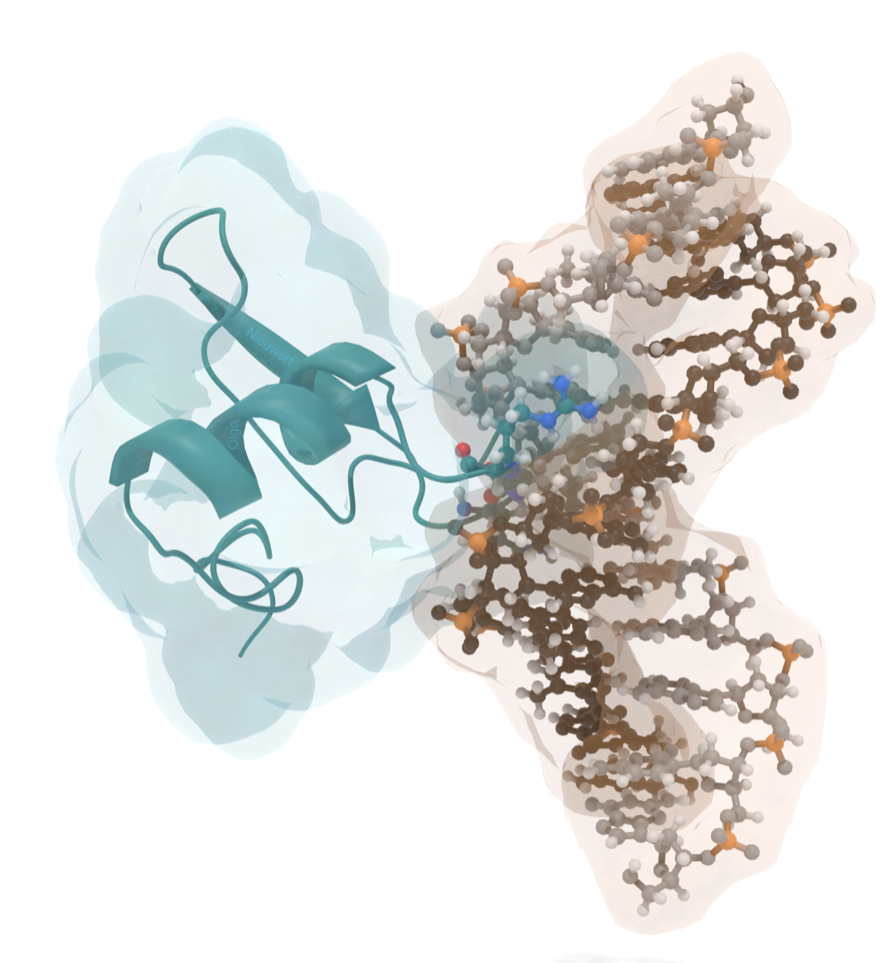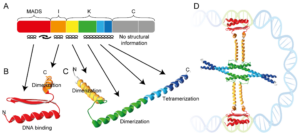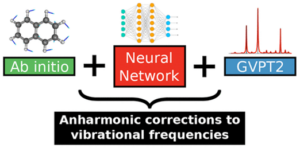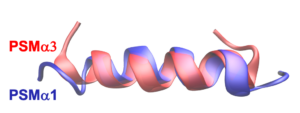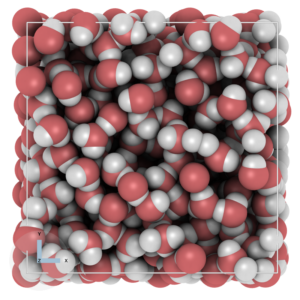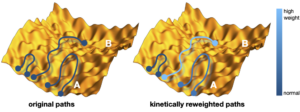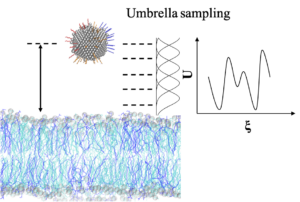MADS domain transcription factors are involved in regulating a variety of processes in plants, ranging from root formation to floral organ development and timing of the floral transition. The MADS protein domain family has many members in plants and any given plant may contain 50 or more family members [Smaczniak2017]. The aim of this project is to characterise and quantify the interaction between MADS domain transcription factors and various nucleotide sequences using molecular simulation. No structural data exists for plant MADS domains in complex with DNA, but for MADS domains from yeast and humans such data is available in the Protein DataBank [1C7U, 6BYY, 3KOV, 1EGW].
To become familiar with the approach as outlined in Ref. [vanHeesch2023], microsecond long MD simulations will be conducted starting with a human/yeast MADS domain in complex with DNA, to map the interactions between protein and DNA. Then, the free energy difference of dissociation will be computed using steered molecular dynamics. The procedure will be repeated with an inverted DNA sequence (A to G and T to C etc). For Arabidopsis MADS domains for which structures are available [1C7U, 6BYY, 3KOV, 1EGW]. this procedure will be preceded by short MD simulations of the MADS domain. Structural models for additional Arabidopsis MADS domains will be obtained with AlphaFold2 [Jumper2021].
The project will result in a list of interaction free energies between MADS proteins and DNA, which can be used in various data science and machine learning approaches.
This project is in collaboration with prof. dr. Aalt-Jan van Dijk at the Swammerdam Institute for Life Sciences
